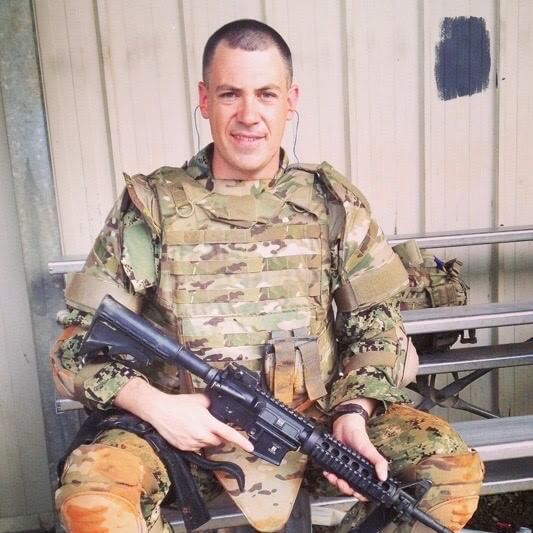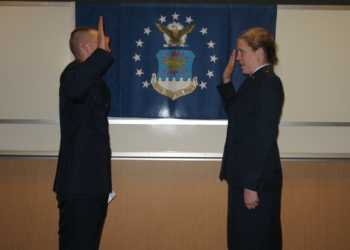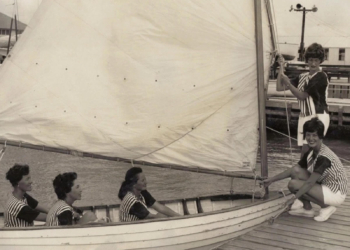There are 82 members in the U.S. House of Representatives who are veterans, including newly sworn-in Congressman Jim Banks, according to the House Committee on Veterans’ Affairs. The Navy Reservist is among a small percentage of the freshmen class who have firsthand perspective of the current conflicts as part of his resume. Banks shared his journey from humble beginnings to becoming a mouthpiece in DC for the nation’s veterans.
Did you always want to be in politics?
I came from an apolitical family. My dad worked in a factory, my mom has “I believe the next two years is a significant period that we are going to go through in fundamentally rebuilding the military.” been a cook in a nursing home until just recently. If anything, they hated politics and politicians, and they still do. So I didn’t grow up in a political family or politics, but I took an interest at a younger age as a college student. I was a college Republican. I interned for a congressman when I was in college and just took an interest at that time in my life.
Did you ever envision you would hold a position like you are today?
Thinking back to my college years, being active as a Republican, I don’t know if I could have ever imagined doing what I’m doing today. I did get elected to a local office in my 20s, I served on the county council in my mid-to-late 20s, and then I got elected to the state senate around the age of 30, so public service is certainly something I aspired to at a younger age.
As your career was progressing in politics, why did you make the decision at that point to join the military?
Yeah, usually it’s the other way around, isn’t it? But, I got to the age of around 30 and the clock was ticking so I knew if I didn’t pursue a lifelong dream of serving in the military at that point I might exceed the age requirements and not get the opportunity to. My brother served for 10 years active duty Air Force, he deployed to the Middle East, and I was always very proud of his service. Both of my grandfathers served in the Army. So I had a family history. My dad always regretted not serving so he would tell us all throughout his life that he almost enlisted, he didn’t do it, and he regretted it. I got to the age where I thought to myself, if I don’t serve I’ll regret it for the rest of my life like my dad. Why the Navy? I started looking at different branches and became aware of the Navy’s Direct Commission Officers (DCO) Program, which is a phenomenal program for people, like me, who a little bit later than most — who have some life experiences — can receive a direct commission and serve their country in uniform. Really, the Navy’s DCO program is unique among all of the branches and I was largely drawn to the Navy because of those unique opportunities presented through the DCO program.
Did deploying to Afghanistan change your perspective of current military affairs?
I’m not sure I would say it changed my perspective, but it gave me a perspective to start with. Everything from the pre-mobilization process to the stress that reservists and National Guardsmen and woman go through before they deployment to the time that they spend when they’re away, that personal experience gave me a perspective that is unique and now that I had a chance to serve on the Armed Services Committee and the Veterans Affairs Committee in Congress, it gives me perspective that I can lend to both of those committees with the most recent mobilization, or deployment experience, of any member of Congress. As far as being in theater being on the ground, and knowing what occurs in a combat zone like Afghanistan, it gave me a valuable perspective as well to be a leader on issues related to armed services. I believe the next two years is a significant period that we are going to go through in fundamentally rebuilding the military. And, this isn’t a partisan statement, I believe Republicans and Democrats are equally to blame for dismantling the military over the past several years.

“I believe the next two years is a significant period that we are going
to go through in fundamentally rebuilding the military.”
Your family encountered a unique situation while you served in the Indiana state senate. You were mobilized for a deployment to Afghanistan and your wife Amanda stepped in for you in a senate role. How did you make that decision?
Well, it wasn’t an easy decision. Amanda, at that point, our daughters were 5, 3 and a newborn. So she had her hands full, but it was very difficult for her when she learned I was being deployed. At first she quickly shot down the notion … because she didn’t think it was realistic. Over time, she prayed about it and thought about the opportunity that she too could serve in a unique way while I was gone. She ultimately decided to run for the position, and she was elected to take my place as a temporary replacement, and she found it to be a unique opportunity to be an inspiration to military spouses all over the country who also step up and do extraordinary things.
What would be your advice to other reservists about making it all work — civilian sector job, military commitment and family life?
I would say, first and foremost, acknowledging that it’s not easy is important. Don’t be afraid to talk about the challenges that you have with your family, with your fellow members of your unit. If you’re enlisted don’t be afraid to tell the officer in charge of your unit about the challenges that you face. Sometimes we have too much pride to talk about it and this day and age it’s important that you never be afraid, never hesitate, to talk to a more senior enlisted or an officer about the personal challenges that you face.
On January 3, 2017, Congressman Banks took his oath as a member of the United States House of Representatives, administered by House Speaker Paul Ryan. Banks believes his recent deployment to Afghanistan has not only prepared him for his new role in Congress, but positions him to inject a fresh view into what today’s military members, veterans, and their families are enduring.
Read comments




































